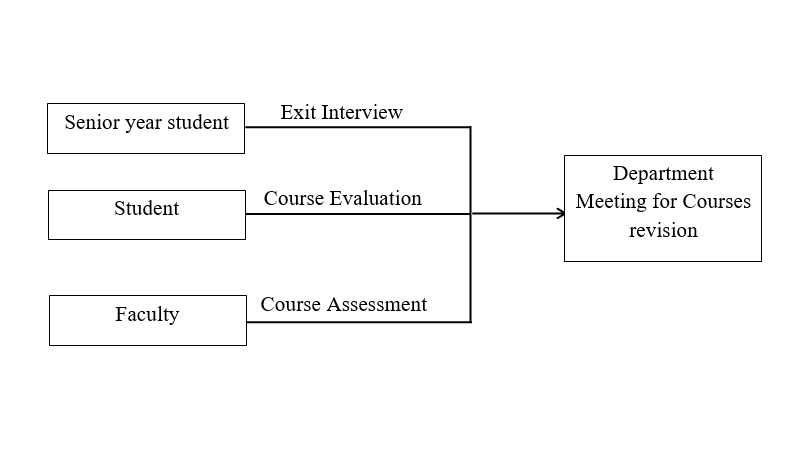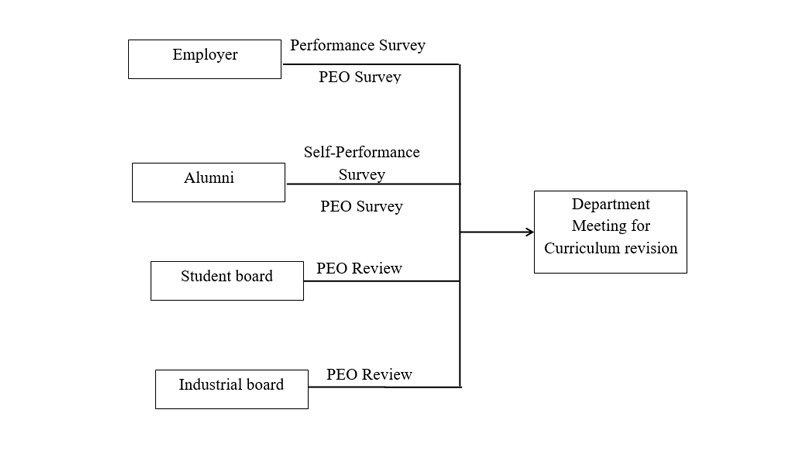Bachelor of Engineering (Computer Engineering)
B.Eng.(Computer Engineering)
Program Education Objective
-
To produce the graduates who are equipped with ability and readiness to work efficiently as professionals in their computer engineering careers.
-
To produce the graduates who are able to learn and apply new technologies that are related to computer engineering filed.
-
To produce the graduates with adequate fundamental knowledge of computer engineering for higher education in engineering, science, and other complementary disciplines.
-
To produce the graduates with high moral and ethical standards in their professional careers as well as caring for the society and the environment.

Student Outcomes
The Student Outcomes of the Computer Engineering program are the same as the 12 learning outcomes of the Washington Accord, stated as following
-
Apply knowledge of mathematics, science, engineering fundamentals and an engineering specialization to the solution of complex engineering problems.
-
Identify, formulate, research literature and analyse complex engineering problems reaching substantiated conclusions using first principles of mathematics, natural sciences and engineering sciences.
-
Design solutions for complex engineering problems and design systems, components or processes that meet specified needs with appropriate consideration for public health and safety, cultural, societal, and environmental considerations.
-
Conduct investigations of complex problems using research-based knowledge and research methods including design of experiments, analysis and interpretation of data, and synthesis of information to provide valid conclusions.
-
Create, select and apply appropriate techniques, resources, and modern engineering and IT tools, including prediction and modeling, to complex engineering activities, with an understanding of the limitations.
-
Apply reasoning informed by contextual knowledge to assess societal, health, safety, legal and cultural issues and the consequent responsibilities relevant to professional engineering practice.
-
Understand the impact of professional engineering solutions in societal and environmental contexts and demonstrate knowledge of and need for sustainable development.
-
Apply ethical principles and commit to professional ethics and responsibilities and norms of engineering practice.
-
Function effectively as an individual, and as a member or leader in diverse teams and in multi-disciplinary settings.
-
Communicate effectively on complex engineering activities with the engineering community and with society at large, such as being able to comprehend and write effective reports and design documentation, make effective presentations, and give and receive clear instructions.
-
Demonstrate knowledge and understanding of engineering and management principles and apply these to one’s own work, as a member and leader in a team, to manage projects and in multidisciplinary environments.
-
Recognize the need for, and have the preparation and ability to engage in independent and life-long learning in the broadest context of technological change.

Application process
Admission Students can apply to this program via Thai university Central Admission System (TCAS)
[ Click here to see the official schedule from the Registration Office ]
1st Round - Portfolio (Excellent GPA Program, Computer Genius Program, English Competency Program, and National Sportperson Program)
2nd Round - Chiang Mai University Quota
3rd Round - Direct Admission
4th Round - Central Admission
5th Round - Free Admission
Future Careers
Security Engineer, Web Engineer, Database Administrator, Software Engineer, Network Administrator, System Administrator, IT Consultants , IT Project Manager, Information Officer, System Analysis, Business Analysis, Information Architect, System Developer, Information Coordiantor, System Architech, Testing Engineer, Network Engineer, System Engineer, Application Engineer